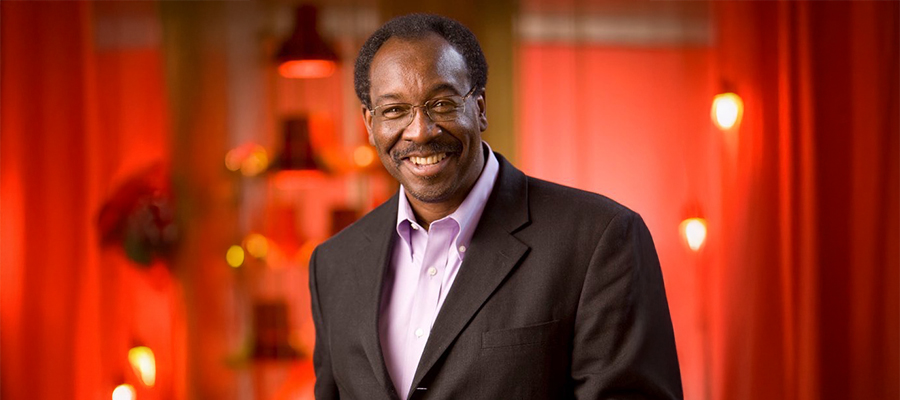

Back in 1998, Patrick Case thought he might be done with the field of education.
Although he had helped transform the recruitment and advancement of racialized teachers during a successful stint in the equity office at the Toronto Boad of Education, Case left the post in the wake of amalgamation, after finding himself exhausted by the “chaos” that came with the merging of several smaller school boards within the Toronto megacity.
“I went to Ontario Hydro from the school board and within two weeks, I knew I was in the wrong place,” Case says. “There were no students there and it honestly gave me the feeling that I’m meant to be in education.”
It wasn’t long before Case found his way back into the sector at the University of Guelph, where he spent almost two decades as a political science professor and director of the institution’s Human Rights and Equity Office.
In 2017, just as he was all set to retire, Case was lured back into it again, unable to resist a fresh job offer from the provincial Ministry of Education, where he was appointed an Assistant Deputy Minister.
“I was there until my retirement at the beginning of 2024 and they were probably the best years of my working life,” says Case, explaining that he was particularly proud of his achievements regarding the collection of demographic data and the establishment of human rights offices at many of Ontario’s school boards, across a term that spanned the administrations of premiers Kathleen Wynne and Doug Ford.
Case’s second attempt at retirement has been almost as unsuccessful as his first: he was recently tapped by the province to lead the investigation into a controversial field trip where some of the students and teachers are said to have taken part in a protest.
Attendees at The Osgoode Certificate in Human Rights for Education Professionals will also benefit from Case’s professional restlessness. He is the Program Director for the certificate, which was developed during his time at the ministry. Case is also co-director of the annual Osgoode Certificate in Human Rights Theory and Practice program.
Now in its seventh year, the unique program takes place over four days of sessions in January and March 2026, providing a forum for senior educational professionals to discuss and assess practical strategies for dealing with human rights challenges in their workplaces.
Case traces his own commitment to human rights and social justice back to his tough upbringing in post-war England, where he was made to feel less and less welcome as racial tensions in the country escalated.
The final straw came in 1968, when Case was run out of a store by the owner, who yelled racial slurs in response to his request for a job. His brother had recently suggested he join him in Canada and within weeks, Case had emigrated. Still, without any qualifications, Case struggled to find his feet in his new homeland.
“I sold encyclopedias, as many new immigrants did at the time and lived on the street for a while in downtown Toronto,” he says. “I also worked day labour for quite a while. I’m still waiting to be paid for a couple of those jobs.”
Things changed when Case got involved in local politics and was eventually elected as a school board trustee. In the early 1980s, he started a long-lasting relationship with Osgoode, enrolling in its LLB program as a mature student.
“It was really tough for a while, because I didn’t have the educational foundation. But that came eventually, and when I discovered Parkdale Community Legal Services, everything kicked in and made sense to me,” says Case, adding that his experience at the legal clinic had an enduring impact on his approach to the practice of law.
“My attitude was that I’m going to spend part of my time dealing with daily needs and individual concerns as they come in, but I’m also going to set my sail to address the deeper, systemic issues,” he says. “That’s all Parkdale training and it’s been the foundation of my work ever since, up to this very minute.”
Case would eventually return to Osgoode to earn his LLM in 2004 and has also been recognized for his many accomplishments as both an Osgoode alumnus and adjunct professor. In 2019, he was named the winner of the Osgoode Professional Development CLE Contribution Award, around the same time as he helped launch the Human Rights for Educational Professionals Certificate.
“The focus changes every year, depending on what’s happening in the field. Last year, we talked a lot about gender expression and pronouns and every year we touch on Indigenous rights and try to have people develop a deeper understanding of the duty to accommodate,” Case says. “These are principles that they don’t get any sort of training in from their regular jobs, so I think it’s important that we keep it going for as long as we can.”
Want to learn more about The Osgoode Certificate in Human Rights for Education Professionals?

Patrick Case – Former Assistant Deputy Minister, Education Equity Secretariat, Ontario Ministry of Education
Program Director for The Osgoode Certificate in Human Rights for Education Professionals and The Osgoode Certificate in Human Rights Theory and Practice

